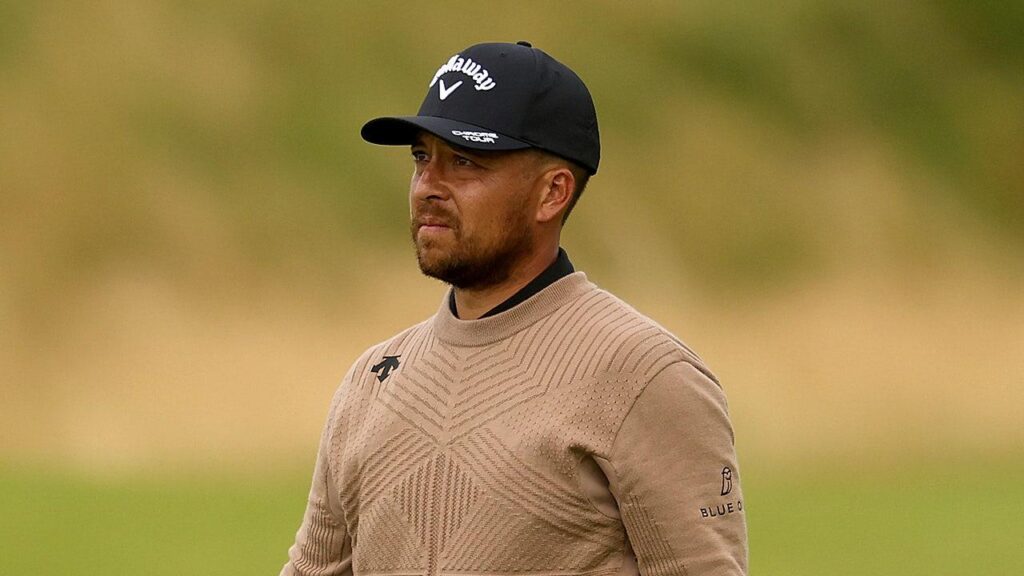Xander Schauffele has sparked debate within the golfing community following a surprising decision ahead of the upcoming Ryder Cup, according to Golfmagic. The three-time PGA Tour winner’s recent move has raised eyebrows and prompted discussions about player commitments and team dynamics as the prestigious biennial event approaches. This article explores the details of Schauffele’s controversial choice and its potential impact on both his career and the US Ryder Cup team’s prospects.
Xander Schauffele’s Unconventional PGA Tour Choice Sparks Debate Ahead of Ryder Cup
Xander Schauffele has raised eyebrows across the golf community with a bold strategic move that deviates from the typical PGA Tour preparation ahead of the Ryder Cup. Instead of opting for high-profile tournaments, Schauffele has chosen to compete in lesser-known events that many see as low-risk but potentially less rewarding in terms of ranking points and exposure. This calculated decision underscores his focus on pacing himself physically and mentally, aiming to peak at the Ryder Cup rather than burn out beforehand. However, critics argue that this approach could backfire, suggesting it limits his readiness against Europe’s top players who are locking in their competitive edge with intense match play experience.
The reaction among fans and analysts is mixed. Supporters praise Schauffele’s emphasis on long-term performance and smart scheduling, while detractors worry about momentum and match toughness. Below is a snapshot comparing Schauffele’s tournament choices with typical Ryder Cup contenders:
| Player | Recent Tournament Selection | Focus |
|---|---|---|
| Xander Schauffele | Smaller regional events | Physical preservation, Ryder Cup peak |
| Typical Contender | Major and graded PGA Tour events | Match readiness, world ranking points |
- Supporters emphasize: longevity and strategic conditioning.
- Critics highlight: risk of losing competitive intensity.
- Implications: could
Xander Schauffele has raised eyebrows across the golf community with a bold strategic move that deviates from the typical PGA Tour preparation ahead of the Ryder Cup. Instead of opting for high-profile tournaments, Schauffele has chosen to compete in lesser-known events that many see as low-risk but potentially less rewarding in terms of ranking points and exposure. This calculated decision underscores his focus on pacing himself physically and mentally, aiming to peak at the Ryder Cup rather than burn out beforehand. However, critics argue that this approach could backfire, suggesting it limits his readiness against Europe’s top players who are locking in their competitive edge with intense match play experience.
The reaction among fans and analysts is mixed. Supporters praise Schauffele’s emphasis on long-term performance and smart scheduling, while detractors worry about momentum and match toughness. Below is a snapshot comparing Schauffele’s tournament choices with typical Ryder Cup contenders:
Player Recent Tournament Selection Focus Xander Schauffele Smaller regional events Physical preservation, Ryder Cup peak Typical Contender Major and graded PGA Tour events Match readiness, world ranking points - Supporters emphasize: longevity and strategic conditioning.
- Critics highlight: risk of losing competitive intensity.
- Implications: could
Analyzing the Impact of Schauffele’s Decision on Team Dynamics and Tournament Strategy
Xander Schauffele’s latest move has sent ripples through the assembled U.S. team, raising questions about cohesion at a critical juncture. His decision, which diverges from traditional team alignment practices, has introduced a new layer of complexity to the Ryder Cup’s already intricate dynamics. Teammates and captains alike are recalibrating strategies as they navigate the balance between individual autonomy and collective goals. This shift challenges the previously stable hierarchy, demanding quicker adaptability from all players involved.
From a tactical perspective, Schauffele’s unconventional approach forces the U.S. camp to rethink pairings and shot selection in a sport where precision and harmony are paramount. The potential benefits include injecting fresh energy and unpredictability into match play but also carry inherent risks of miscommunication and mismatched play styles. Below is an overview of how Schauffele’s decision could affect key strategic aspects during the tournament:
Strategic Element Potential Impact Pairing Flexibility Increased options but greater uncertainty in chemistry Communication Potential breakdowns in synchronization under pressure Momentum Control Possible shifts in team morale and confidence levels Captain’s Tactics Need for real-time adjustments and alternative contingency plans - Enhanced unpredictability: Might disrupt opponents’ preparation but challenges teammates’ preparedness.
- Pressure redistribution: Other players may feel added responsibility to stabilize performance.
- Team chemistry test: Could catalyze stronger bonds if managed well or accelerate fragmentation if not.
Closing Remarks
As the Ryder Cup approaches, Xander Schauffele’s controversial decision continues to spark debate across the golfing community. While opinions remain divided, there is no doubt that his choice will influence both team dynamics and tournament narratives moving forward. Fans and analysts alike will be watching closely to see how this development impacts Schauffele’s performance and the broader competition in the weeks to come.
- Advertisement -- Advertisement -








